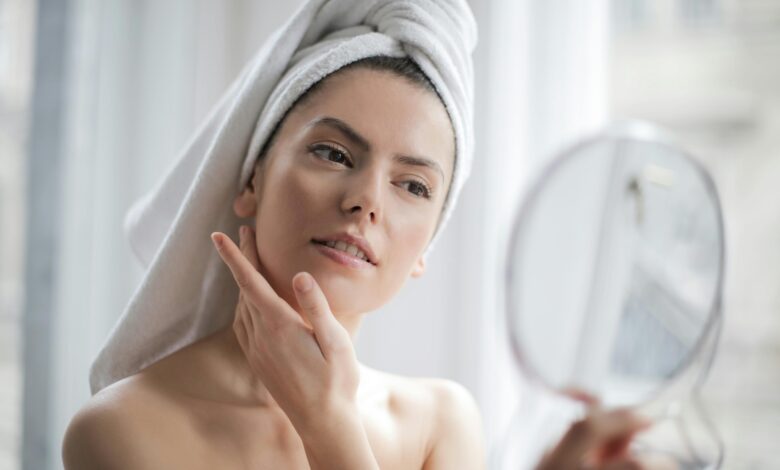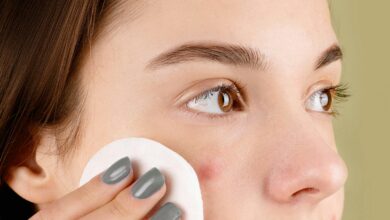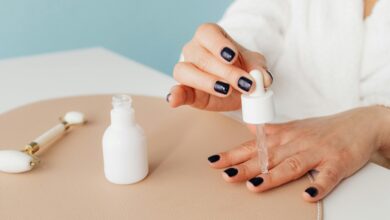Skincare: A Comprehensive Guide to Healthy and Radiant Skin

Skincare: A Comprehensive Guide to Healthy and Radiant Skin
Taking care of your skin is essential for maintaining its health, appearance, and overall well-being. The skin, being the largest organ of the body, acts as a barrier protecting us from harmful external elements. An effective skincare routine can help prevent various skin issues, maintain its youthful appearance, and enhance its natural glow. This article delves into the intricacies of skincare, exploring different skin types, the importance of a proper routine, essential skincare steps, and tips for choosing the right products.
Understanding Your Skin Type
Before diving into a skincare routine, it’s crucial to understand your skin type, as it determines the kind of care and products your skin needs. The main skin types include:
- Normal Skin: Balanced moisture levels, neither too oily nor too dry, with a smooth texture and minimal imperfections.
- Dry Skin: Characterized by a lack of moisture, leading to flakiness, tightness, and sometimes itchiness. It often appears dull and may have more pronounced lines.
- Oily Skin: Overproduction of sebum leads to a shiny appearance, enlarged pores, and a propensity for acne and blackheads.
- Combination Skin: Features both dry and oily areas, commonly with an oily T-zone (forehead, nose, and chin) and dry cheeks.
- Sensitive Skin: Easily irritated by environmental factors or skincare products, often resulting in redness, itching, or burning sensations.
Importance of a Skincare Routine
A consistent skincare routine is vital for maintaining skin health and preventing issues. It provides the following benefits:
- Cleansing: Removes dirt, oil, and impurities that can clog pores and lead to breakouts.
- Moisturizing: Keeps the skin hydrated, preventing dryness and flakiness.
- Protection: Shields the skin from harmful UV rays and environmental pollutants.
- Anti-Aging: Helps reduce the appearance of fine lines and wrinkles, promoting a youthful look.
Essential Skincare Steps
A well-rounded skincare routine typically includes the following steps:
- Cleansing: Use a gentle cleanser suited for your skin type to remove impurities without stripping the skin of its natural oils. For oily skin, opt for a foaming or gel cleanser, while dry skin benefits from a creamy or hydrating cleanser.
- Exfoliating: Exfoliation removes dead skin cells, promoting cell turnover and revealing a smoother, brighter complexion. Use a gentle exfoliator 1-2 times a week. Chemical exfoliants with AHAs or BHAs are effective for most skin types, while physical exfoliants can be too harsh for sensitive skin.
- Toning: Toners help balance the skin’s pH and remove any residual impurities after cleansing. Choose an alcohol-free toner with soothing ingredients like witch hazel, rose water, or hyaluronic acid.
- Moisturizing: Hydrate your skin with a moisturizer suitable for your skin type. Lightweight, non-comedogenic moisturizers are ideal for oily skin, while richer, cream-based moisturizers work well for dry skin. Combination skin may require different moisturizers for different areas.
- Sun Protection: Apply a broad-spectrum sunscreen with at least SPF 30 every day, regardless of the weather. Sunscreen protects against harmful UV rays that can cause premature aging, sunburn, and increase the risk of skin cancer.
Advanced Skincare Steps
For those looking to enhance their skincare routine, consider incorporating these advanced steps:
- Serums: Serums contain concentrated active ingredients that target specific skin concerns, such as fine lines, hyperpigmentation, or hydration. Common ingredients include vitamin C, hyaluronic acid, niacinamide, and retinol.
- Eye Cream: The skin around the eyes is delicate and prone to early signs of aging. Eye creams are formulated to address puffiness, dark circles, and fine lines. Look for ingredients like peptides, caffeine, and antioxidants.
- Masks: Face masks provide intensive treatment for various skin issues. Clay masks are excellent for oily skin, hydrating masks benefit dry skin, and sheet masks offer a range of benefits depending on the ingredients.
- Facial Oils: Oils can provide an extra layer of hydration and nourishment. Jojoba oil, rosehip oil, and argan oil are suitable for most skin types, including oily skin, as they can help balance sebum production.
- Treatment Products: For specific concerns like acne, hyperpigmentation, or aging, targeted treatments such as spot treatments, chemical peels, or retinoids can be incorporated into your routine.
Tips for Choosing the Right Products
Selecting the right skincare products is essential for an effective routine. Here are some tips to guide you:
- Read Labels: Look for products labeled as non-comedogenic, hypoallergenic, and suitable for your skin type.
- Patch Test: Before using a new product, perform a patch test on a small area of your skin to check for adverse reactions.
- Consult a Dermatologist: If you have persistent skin issues or need personalized advice, consult a dermatologist.
- Avoid Overloading: Using too many products can overwhelm your skin. Stick to the basics and introduce new products gradually.
- Be Consistent: Consistency is key to seeing results. Stick to your routine and give products time to work, typically 4-6 weeks.

